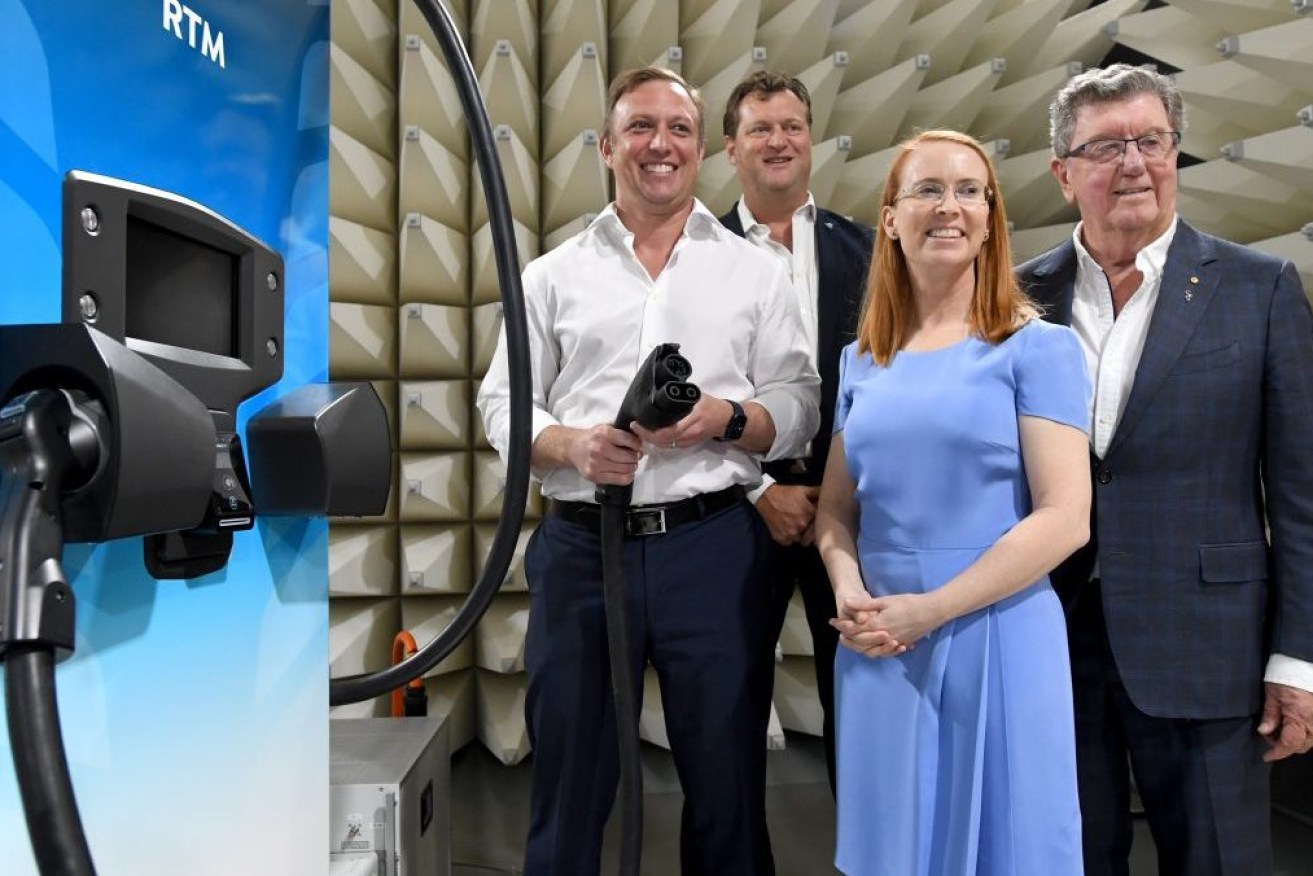Queensland’s energy king stumps up $10m to establish Philippines battery factory
One of Queensland’s richest businessmen will establish a $10 million battery factory in the Philippines in a fresh bid to tap into the “once-in-a-century” renewable energy transition.

Tritium investor Trevor St Baker (right) with Deputy Premier Steven Miles (left) , Tritium CEO Jane Hunter and Chief Revenue Office David Toomey. (AAP Image/Darren England)
Trevor St Baker signed contracts to establish the lithium-ion battery factory this week, with commercial production expected to begin early next year.
The facility, based in New Clark City, will create batteries for energy storage, electric vehicle charging stations and small electric vehicles, and will export products to Australia, the US, India, and countries in the Asia-Pacific region.
The announcement comes at a time of growing demand for lithium-ion batteries, with Markets and Markets predicting the industry will be worth more than $198 billion by 2031, up from $71 billion this year.
St Baker said the factory would provide technology vital to storing solar energy for millions of businesses and households, and could also be used to power the growing electric vehicle market.
“StB Giga-Factory is positioned to capture the once-in-a-century transition towards a renewable energy electricity system in which lithium-ion batteries are expected to play a pivotal role,” he said.
“Our battery products will reduce greenhouse gas emissions, improve fuel independence, improve electricity reliability (and) decrease the grid reliance for EV charging at peak system demand times.”
The factory, which is expected to employ 150 Filipino workers, is one of several the former coal investor has made in renewable energy and electric vehicle projects, including charging provider Evie Networks and hardware manufacturer Tritium.
The factory is expected to reach a capacity of 1.2 gigawatt hours by 2030.
Rising demand for lithium-ion batteries is being fuelled by renewable energy generation and the increasing adoption of electric vehicles, which made up 8.8 per cent of new car sales in Australia during June this year.
A study released in March by the Future Battery Industries Co-operative Research Centre forecast demand for lithium-ion batteries to rise by 18 per cent between 2020 and 2030 – outperforming earlier estimates.
The research also found Australia could add $16.9 billion to its bottom line and create more than 61,000 jobs by making batteries in the country, using its rich supplies of lithium.












